MnM Podcast number three sees the discussion of quite a serious topic, but nevertheless one that is important to bring up. In light of mental health week we discuss problems that are both personal and publicly important.
MnM Podcast number three sees the discussion of quite a serious topic, but nevertheless one that is important to bring up. In light of mental health week we discuss problems that are both personal and publicly important.
While the medical world is starting to establish the connection between the gut and the brain, there is still not enough awareness when it comes to the damage antibiotics can cause to the gut, especially for young infants.
Dr Martin Blases published an article in 2011 that studied the potentially dangerous long-term consequences that can come from the extensive use of antibiotics.
Ever since, dieticians and nutritionist have gathered more evidence supporting this theory, but there is still a great lack of support from doctors for their recommended recovery treatments.
Jackie Morgan is founder of Well Hub Nutrition and specialises in nutritional medicine, which is an extensive form of healing that views diet for its therapeutic potential.
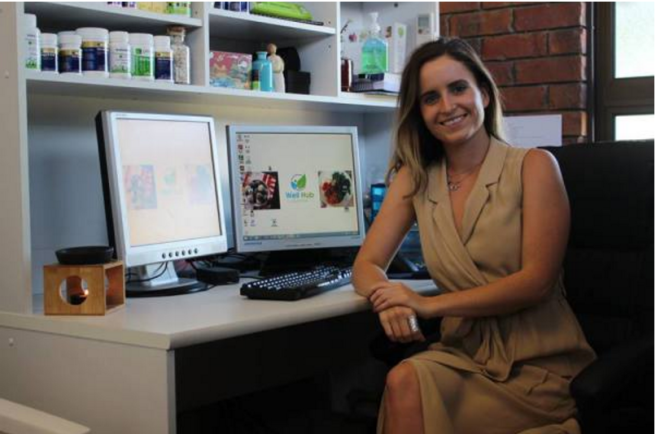
Ms Morgan sees many patients with poor functioning digestive systems and gut issues in her clinic, which in many cases can be traced back to the use of antibiotics or anaesthetics.
It all starts with the gut’s microbiome, which is a collection of intestinal bacteria that are protected by the gut.
Through extensive research scientists have established that microbiome play a big part in psychology, immune function and metabolism and an imbalance in the microbiome has been linked to many digestive issues.
“The use of antibiotics breaks down our gut lining and leaves our intestinal bacteria exposed, which leads to the intestinal bacteria being broken down and destroyed.
“The unfortunate things is that antibiotics destroy all bacteria, not just bad and poor bacteria,” Ms Morgan says.
The reason that these effects are more severe in young infants than adults lies with the fact that strong intestinal gut bacteria are not completely built until the age of five.
“So it means that the smallest changes in the gut environment can cause the biggest damages at those young ages,” Ms Morgan says.
Ms Morgan emphasises that doctors should prescribe probiotics to harvest good bacteria after the use of antibiotics to help the gut recover and prevent gut issues that can become a lifelong problem.
25-year-old Brisbane lawyer Georgia Dight has struggled with digestive issues until recently and is just one of many examples of how antibiotics can destroy gut lining.
After doctors solemnly advised her to improve her diet and exercise more, she turned to a nutritionist as a last resort to solve her gut problem.
Her nutritionist discovered her poor gut bacteria were a result of the multiple times she was treated with antibiotics as a three-year-old and the fact that she was never given any type of probiotics to help her gut recover.
“I was shocked to find out it was because of something that happened so early in my life and that it could have been helped by something as simple as probiotics,” says Ms Dight who is now trying to repair her gut though the use of various supplements and fitting nutrition.
Unfortunately, Ms Morgan’s therapies often get overthrown by her patients’ doctors because there simply isn’t enough awareness about the relation as of yet.
“I’ll recommend therapies to my patients and they’ll be taken to their doctor who will say it’s not necessary,” Ms Morgan says.
She recognises that doctors have more influence in the medical world, but would like to see them promote gut health more.
“I suppose as more studies are done as well there will be much more awareness about it and there’ll be more scientific evidence to back up how the gut does influence our health,” she says.
In addition to consulting patients in her health practice, Ms Morgan uses social media platform Instagram to spread awareness about gut health and to give people nutritional solutions for healing the gut.
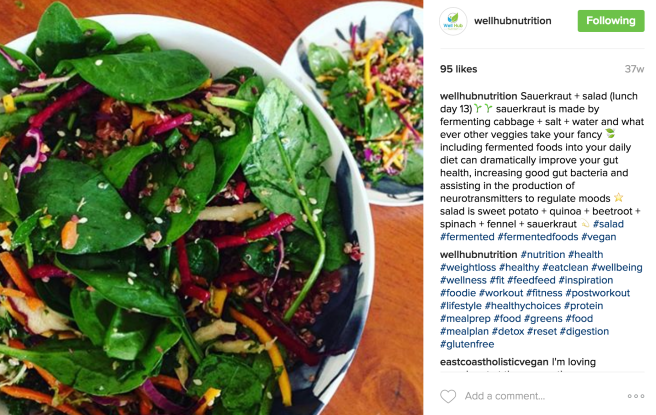
“It can be something as simple as bone broth, which harvests gelatine that is important for increasing the amount of glutamine in our gut and help to heal up the gut lining.
“But when it come to antibiotics in young children, probiotics are simply the best form of treatment because they are the strongest,” Ms Morgan says.
Sources:
This week every news outlet in the world was in the grip of the first presidential debate between Trump and Clinton. The first out of three debates took place Monday night in the US and I streamed it live on Tuesday in Aus to watch two people restating their own agenda points whilst interrupting each other in personal attacks (one particular person more than the other..) and call it debating. In either way, these are the four moments I found the most remarkable.
Stamina
“I don’t believe she does have the stamina,” Trump answered when the host asked why Trump stated that he doesn’t think Clinton has a presidential look. Clinton responded to the typical Trump insult powerfully, by saying: “As soon as he travels to a 112 country and negotiates a peace deal, a cease fire, a release of dissidents, an opening of new opportunities in nations around the world, or even spends 11 hours testifying in front of a congressional comity, he can talk to me about stamina.”
Misogynistic
It was to be expected for Trump’s female opponent to make a remark about his misogynistic ways.”He tried to switch from looks to stamina, but this is a man who has called women pigs, sluts, and dogs, and someone who has said pregnancy is an inconvenience to employers.
“Who has said women don’t deserve equal pay unless they do as good a job as men.”
All Trump really had to say in defence were a few “not true” interruptions.
Taxes and emails
Possibly the most remarkable moment in the debate was when Trump said “I will release my tax returns against my lawyers wishes, when she releases her 33.000 emails that have been deleted.”
Clinton keeps calm and calls it another example of ‘bait and switch’ and notes that everyone running for American president in the past 40 years has released their tax returns and notes there is no prohibition of releasing it.
“So you’ve got to ask yourself why won’t he release his tax returns and I think there might be a couple of reasons.
“First, maybe he’s not as rich as he says he is, second maybe he’s not as charitable as he claims to be.
“This is something that the American people deserve to see and I have no reason to believe that he’s ever going to release his tax returns, because there is something he’s hiding,” Clinton said.
Jobs
“We have to do a much better job at keeping our jobs,” was Trump’s comment on the topic of employment that was bound to be discussed.
Trump critically asked Clinton, “you’ve been doing this for thirty years, why are you just thinking about solutions right now?
“I will bring back jobs, you can’t bring back jobs.”
Clinton confidently responded, “when I was secretary of state we actually increased American exports globally 30% -we increased them to China 50%- so I know how to really work to get new jobs and to get exports that help to create more new jobs.”
Madison and I thought we’d have a second go at podcasting. This time the topic is body image, a modern issue for many (young) people that gets emphasised by the online world.
Enjoy the ride.
After a good few weeks of enjoying the little beam of sunshine in my life called Online Journalism 1, it is not a surprise that I now enjoy podcasts. And by enjoy, I mean I listen to them in my precious leisure time, when no uni work or crying babies are allowed to even be in the same room. Because, as it turns out, podcasts are fun, informative, refreshing and the perfect food for the brain. The advantage that you can also fold your Lorna Jane active wear and finally detangle all the thin and tiny necklaces in your jewellery box whilst listening to them, is just a coincidental pleasure.
So, as I am now one of those people who rant on about podcasts to their friends and family, I thought it would only be fair to also share my favourite audio packages on my blog.
Serial

One of my good friends has been hassling me for months to get onto this podcast. This particular friend was insanely obsessed with Netflix documentary Making a murderer and simply found this podcast when she was in desperate need of something to fill the Steven Avery sized hole in her life. In Serial This American Life journalist Sarah Koening takes you on a compelling emotional rollercoaster that is the 1999 Balitmore murder of Hae Min Lee. Koening shows excellent journalism in figuring out whether former boyfriend Adnan Syed has been locked up for life for a murder he did or did not commit. Koening cleverly plans out her own interviews, findings and phone calls with Syed to deliver her investigation in the most gripping way possible. Serial is extremely addictive, so please be warned.
Ted Radio Hour
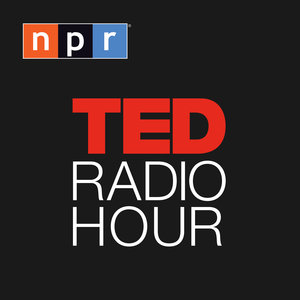
Being a lover of the conventional Ted Talks, I couldn’t help but dive into what the number one discussion and information platform in the world had to offer audio-wise. And again, they did not disappoint. The same type of talks, the same public sphere topics discussed by experts through excellent research, only this time for radio with a very charming host. Ted Radio Hour has a humongous collection of episodes and serves as the perfect companionship for long car or train rides.
Sleep with me
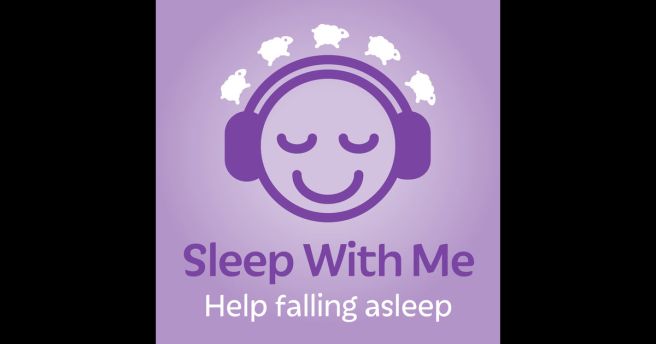
I’ll admit in all honesty, this last one is a bit of a gimmick rather than something I actually am passionate about. But hey, I am after all a girl who used to deliver her parents a personal hell every night before bedtime by making them read to me until they ended up falling asleep from exhaustion. And this podcast fulfils, in a slightly different way, just this task. If you’re even slightly as human as I am and sometimes find yourself tossing and turning in your bed when you’ve turned off your Netflix and put your phone on silent, struggling to put the day’s happenings aside, this podcast might be able to help you out. Scooter and his calm voice take you through stories that are just interesting enough for you to put aside your thoughts and listen, but the calm manner in which they are delivered will have you dosing off quickly. Sure, not every episode is as effective as the other. And if you have just blown the most important exams of your life this podcast might not be an instant band aid, but let me tell you, it really is worth a try. And it’s quite a humorous concept, when you think about it. I do also believe everyone can use a bit of a laugh in their lives here and there.
So, there you have it. My unqualified opinion on my favourite podcasts. I intend to add many more favourites to this list over the course of time. Because one things is for sure, ladies and gentlemen, podcasts rock.
Matt Liddy, editor of interactive digital story telling with ABC News, came into our week seven lecture.
According to electronicportfolios.com this is the definition of digital story telling

As a specialist at digital story telling, Matt gave us seven tips to keep in mind.
Rich content matters.
There’s not one right way to tell a story.
Start with an audience.
Think digital from the start.
Interactive is expensive.
Don’t forget about the story.
If it doesn’t work on mobile, it doesn’t work.
The job is only partly done when you hit publish.
Ignore Facebook at your own peril.
By all means learn to code, but that’s not the only path.
The best way to get started is to just get started.
Together with the lovely Madison Scott I recorded a podcast on prejudice and recent news related incidents that spike debate about the topic. It is our first podcast, so be gentle on us please ;).
https://soundcloud.com/maudy-veltema/mm-podcast-1-prejudice/likes
In the week 5 lecture for Online Journalism us students were payed a pleasant visit by blogger Nikki Parkinson.
As a successful founder and owner of her blog Styling You she came to tell us about how she got into the blogging circuit and that although blogging might not automatically sound like something you can earn money with, she told us that many people actually do.
To make all our fears of being a money making part of the big world wide web go away, she gave us a few important insights into how to run a blog.
Aside from telling us to embrace change, find our voice, find your niche and be persistent, she showed us that having a blog actually brings you many advantages like an audience, authenticity and most importantly influence.
Nikki explained how organic growth means engaged growth and that this is what it’s all about in the blogging world because it helps you gain a community.
Also very handy to know-and one thing I was in particular very curious about- are the many different ways you can actually make money as a blogger.
These appeared to be:
Income streams
Sponsored posts
Brand ambassadorship
Advertising
Selling products or e-courses
Collaborations off the blog
Affiliate sales
Networking advertising
By the end of the lecture I felt very informed and I can’t help but admit that it also gave me a slight hope.
If, like any other young woman with a deep love for anything food-related, I was ever to pursue my dream (you know, the dream for when my serious journalism job doesn’t work out) I will definitely take these tips into account.
Nikki is a great example of a successful and influential communication professional who builds influence and establishes herself in the online world through her blog.
As a student currently doing an online journalism subject, I couldn’t help but wonder about the ethics in online journalism and especially if they’re different from traditional journalism.
Last semester I completed a subject called Journalism Ethics. Here we learned all the ethical skills a journalist should possess to practice responsibly. Certain codes and ground rules gave guidance into difficult ethical dilemmas a journalist could face.
But the online environment definitely brings new problems when it comes to ethical practice.
However, after doing research, I did find there are things a journalist can maintain to establish themselves as an ethical digital reporter. These handy tips come from the School for Communication and Journalism of the University of Southern California.
These tips for ethical online journalists are very handy and applicable. However, I do believe the basic ethical considerations for journalists should be the same, whether in traditional or online journalism.
Like the MEAA Journalist Code of Ethics prescribes, journalists should always commit themselves to fairness, independence, honesty, and respect for the rights of others.
As a journalist in the making and hopefully someday a trained and professional example of the trade, I will always take these key points into consideration.
Many, according to Brisbane Times Queensland political reporter Amy Remeikis.
During the very informative and surprisingly fun guest lecture this week we learnt that reporting from Queensland Parliament’s weekly Question Time can be done in an informative yet FUN way.
Yes, fun and politics, Amy thinks it is a very fertile combination and the live blog is the living proof of this.
On the Question Time live blog Amy keeps Queenslanders updated on what’s happening inside the chamber whilst keeping the vibe relaxed and playful.
Amy involves the public into her live blog through the Dixer requests people can put in, which is cleverly Led from the term Dorothy Dixer.
Dorothy Dix was an American journalist who was the pioneer in the world of advice columns. She was renown to frame questions and publish prepared answers. In Australia the term Dorothy Dixer is now referred to when a minister gets asked a question from their own party that allows him to make an announcement hidden as a reply.
The music delivered through the Dixer Requests combined with the funny and informal tone throughout the live blog truly make up a fun ensemble of what most people would consider to be boring stuff.
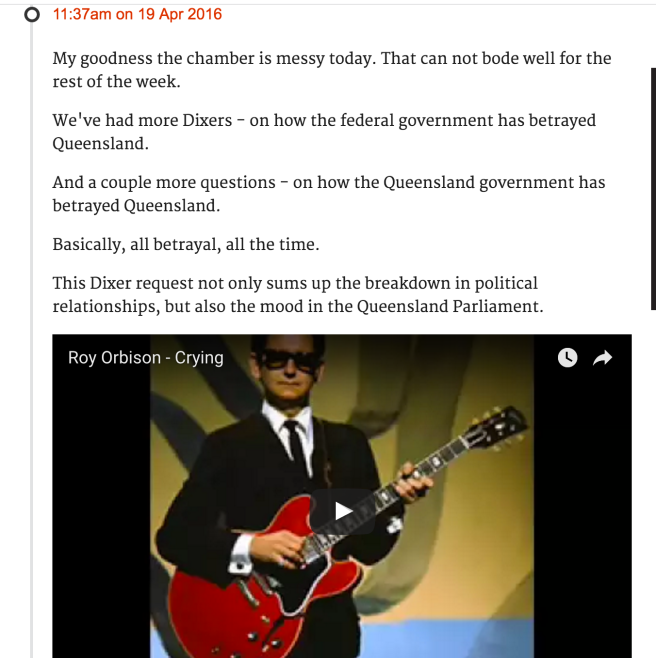
When asked how to get people to care about politics -because we all know it can be very dry- and specifically how to become a successful blogger, Amy has a few key points.
l I can conclude this was one of the more enjoyable lectures in my course so far. Real life tips from a real life journo… Man, I really do go to a university for the REAL world.